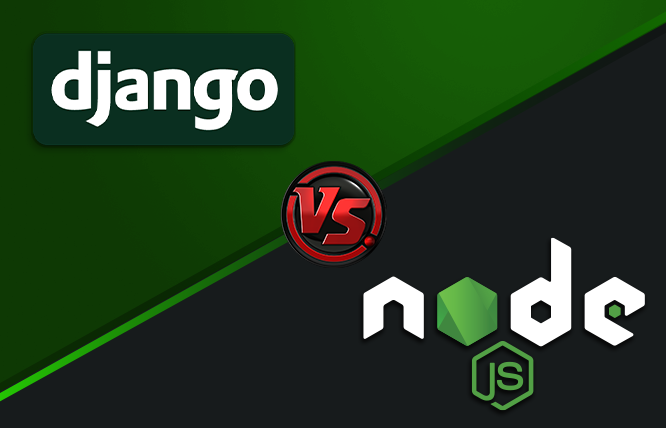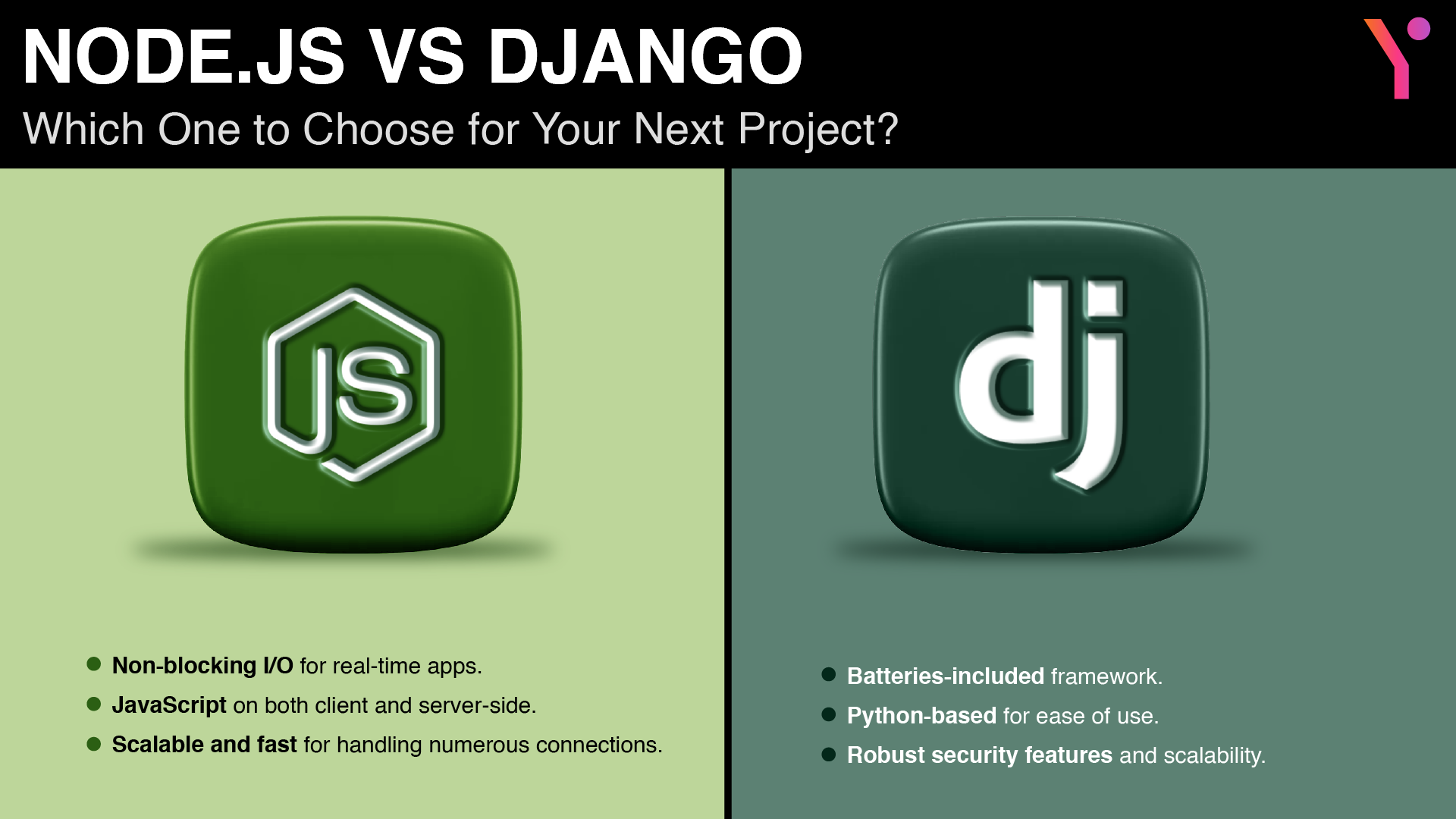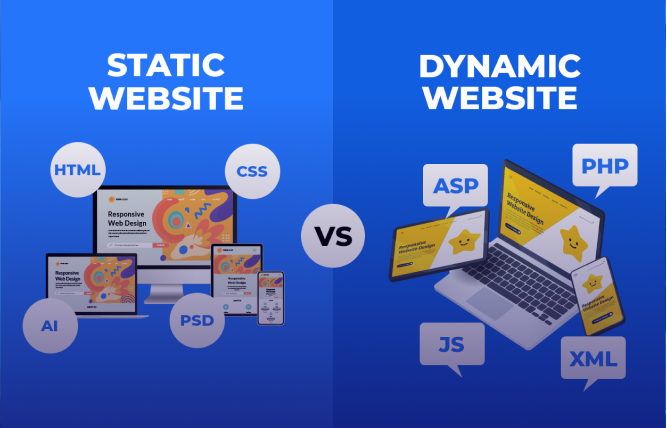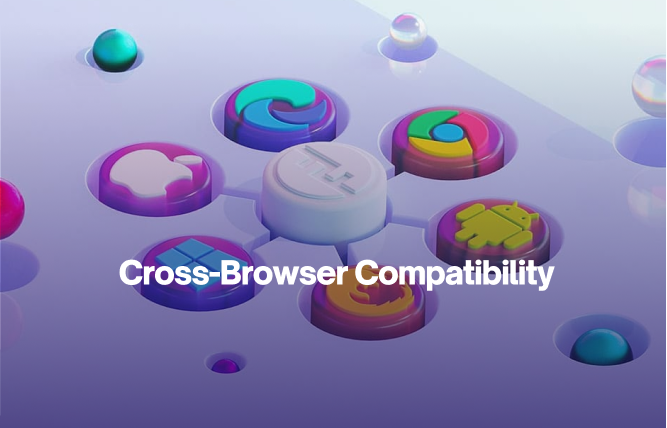Introduction
True, both Node js and Django are immensely powerful backend frameworks. But, each of them excels in some areas. For instance, Node.js is great with APIs and real-time apps, whereas Django is great with data-driven content projects. If you want to have a further degree of knowledge of them, then read this blog.
Why Node js vs Django?
It is imperative to state that Node.js and Django are some of the finest frameworks that can be utilised for backend web development. On occasions, Node.js is utilised with Express.js, which is also a reputed framework. This is why it is important to compare these two backend frameworks commonly utilised for web development since this comparison is exactly what many of today’s developers need.
Node js vs Django: Brief Overview
| Basis | Django | Node.js |
| Security | Very secure (it provides in-built security mechanism) | Less secure |
| Architecture | MVT | Event-driven |
| Complexity | Very complex | A lesser degree of complexity |
| Development time | Less time | More time |
| Performance | Slower | Faster |
| Community | Relatively smaller and less active | Large and more active |
| Scalability | Can take care of huge traffic and a large amount of data | Can take care of a large number of requests simultaneously |
| Cost efficiency | More cost efficient | Less cost efficient |
Node js vs Django: Leading Differences
When looking at the Node js vs Django issue, it is essential to compare the two using a host of parameters. So, let’s begin:
Architecture
Django
This is known to follow the MVT (Model View Template) architecture, in which:
Model – is the structure of how data is safely kept in the database.
View – takes care of the request made whenever a specific URL is hit.
Template – comes as the HTML file that will get rendered by the view on a given browser.
In simple terms, whenever anyone seeks a specific URL, it is up to the view to handle the request. Then, interact with the model to get data from the associated database. Afterwards, depending on the request, the appropriate template is rendered, which is seen by the user on the browser.
This is why Django is more appropriate for monolith architecture-based projects. Note that with monolith applications, all components and services of the complete application are coupled in one massive codebase.
Node.js
This is known to follow an event-driven architecture. Here, the event can be described as something that happens, such as a swipe, button click, and so on. It is in the nature of event-driven applications to respond to specific events whenever they happen.
Being event-driven makes Node.js better suited to implement microservices. Looking at microservices, they are loosely coupled and stand-alone services that make an application.
Therefore, whenever an event is triggered, at least one microservices will be responsible for either responding or handling it.
Security
Django has a built-in security mechanism. At the same time, this has to be done manually in node.js. Note that the core emphasis behind offering security in web apps is to never trust data that comes from the browser.
In Node.js, it becomes rather difficult to ensure security as data is coming from a host of sources, and this is because of microservices utilisation.
Looking at Django, it offers protection against a host of security attacks. These include:
Cross-Site Request Forgery: This is where a given user pretends to be a different entity and takes action on someone else’s behalf. By default, Django includes {% csrf_token %} template tag to the forms. This ensures that only the authorised users are able to submit a form.
Cross-Site Scripting: This is where malicious javascript code is either executed through the browser or stored in the database via client-side scripting.
SQL Injection Protection: As every database query will be made by Django, this is why the data in the database will remain safe against all sorts of illegal queries that are made to either update or access the data.
However, for any custom SQL query, the protection needs to be manually ensured.
A very positive thing about Django is that it offers protection to the application against many other such attacks.
Development Time
Django
While it presents a host of tools that can aid in decreasing the total amount of code, it has a very interesting “batteries-included” philosophy. This saves developers from writing huge boilerplate code and quickly coming up with a fully functional application.
Node.js
There are a host of npm packages available for node.js. Still, you cannot trust them blindly as quite a few of them are not maintained well, and some may not be optimised to follow the best practices. Overall, this is why Django is seen as having an edge here.
Complexity
When we look at Django, we see that it requires the developers to follow a specific pathway to get activities done. Comparatively, it is rather comparatively flexible to work in node.js.
Because of this, many experts are of the opinion that node.js is easy to learn.
Scalability
Django offers a host of features to handle and manage big amounts of traffic as well as huge amounts of data. Looking at node.js, it can handle a great amount of simultaneous requests. This is because of its asynchronous and single-threaded nature.
To horizontally scale the application, no state should be locally stored. Otherwise, any request that is made to a different server will not be completed. This is why third-party apps are utilised to store the states, which could be cloud storage, cache, and databases.
Django is known to offer tools to integrate these into an application.
Looking at Node.js, its requests are taken care of by third parties or APIs that do not lead to the blockage of the main, therefore enabling it to take care of massive requests on a simultaneous note.
Moreover, Django has the support of a host of tools to improve scalability. When looking at node.js, it offers internal tools such as cluster modules, which aid in scaling the application. It goes on to fork the main process in as many child processes as there are CPU cores and applies load balancing on such child processes by making use of the round-robin algorithm.
Also, it ensures zero downtime whenever a given process fails or whenever the complete application is required to be restarted after deployment.
Performance
Node.js is asynchronous. This is why it is faster than Django, and it is fully capable of performing more than one task on a simultaneous note.
Cost Efficiency
Django is considered to be cost-efficient as it takes a lesser amount of time to develop applications. Looking at Node.js, it is comparatively more time-consuming. This is why it ensures a greater degree of cost.
Community
First, let’s look at Django. It has a rather large community. Still, it is small as compared to node.js. Let’s focus on Node.js a bit. It is generally considered to be a more widely used framework and is powered by an immensely active community.
Node js vs Django: Important Usage Information
| Framework | Companies Using the Framework |
Node.js | GoDaddy, Uber, Linkedin, NASA, Twitter, Walmart, Paypal, and Netflix |
Django | Instagram, Spotify, Mozilla, and Bitbucket |
Node js vs Django: When to Use Which Framework?
Django
This framework is utilised when we are required to quickly build an application or when the security factor is a massive concern, like for fintech domain applications.
Additionally, it can be utilised when the application has a massive amount of data since Django’s in-built Object-Relational Mapping and admin interface make it easy.
Node.js
This is utilised when you are looking to implement services that demand high bandwidth or microservices. Additionally, it is recommended to make use of node.js when you require general real-time applications or live streaming, such as collaboration tools, chat applications, and so on.
Node js vs Django: In-Depth Look at Use Cases
True, both Node.js and Django are immensely powerful tools when we look at the web development space. This point is even appreciated by today’s leading WordPress website development services.
Getting to know their use cases will allow any potential user to select the right framework for any upcoming project:
Node.js: Amazing in Real-Time and Scalability
Many of today’s web development agencies, including WooCommerce website development agencies, agree that Node.js is great for creating real-time applications where seamless interaction is of paramount importance.
This is because its non-blocking and event-driven architecture lets it handle a great volume of concurrent connections in an effective manner. Due to this, it is great for:
Live dashboards: The dynamic display and real-time updating of data is easy with Node.js. This is why it is great for dashboards that need to instantly reflect changes.
Chat Apps: It is well-understood by many that real-time communication is at the centre of chat apps. Here, Node.js excels immensely as it is capable of handling the constant flow of updates and messages.
Collaborative tools: It is in the nature of Node.js to enable seamless collaboration features such as document sharing and simultaneous editing. This will ensure that everyone stays in proper sync.
When we look besides real-time, we see that Node.js is a robust contender for:
Microservices: Node.js is usually considered to be a wonderful choice for building microservices that are independent, small services. These can be deployed and developed separately, promoting flexibility and modularity.
Streaming Applications: Node.js is amazingly suited for streaming data, such as video or audio. This will ultimately ensure that there is uninterrupted and smooth payback.
APIs: Node.js is noted for its building of scalable and efficient APIs that offer both data and functionality to a host of applications.
Single-page Applications (SPAs): Node.js can effectively power SPAs backend. This is where without full reloads, the initial page load is followed by dynamic content updates.
Django: Data and Content Powerhouse
This is considered a robust Python framework that is great for building data-heavy and content-driven applications. It is because of its batteries-included approach and comprehensive features that it is considered to be a great choice for:
Enterprise Applications: You can use Django to build large-scale enterprise applications that have complex requirements. It has robust security features as well as scalability, which makes it a great choice when doing highly mission-critical projects.
Rapid Development: Django’s massive set of pre-built components and features and structured approach let developers quickly and efficiently build applications. This will go on to decrease the overall development time.
Data-Driven Applications: Django is known to seamlessly integrate with databases. Additionally, it presents a highly powerful Object-Relational Mapper (ORM) that can simplify working with data. Its huge libraries offer tools for the purpose of data analysis and manipulation. This ultimately makes it great for those applications that depend immensely on data processing.
Content Management Systems: Django offers a reliable foundation for building Content Management Systems (CMS) platforms such as eCommerce sites, blogs, and websites. Features such as content management tools, admin panels, and user authentication simplify content management and creation.
Selecting the Right Framework
It is safe to assume that your choice of selecting either Node.js or Django greatly relies on the following factors:
Application Type: Is your application content-centric, data-driven, or real-time?
Scalability and Performance Requirements: Frequent or high-traffic updates?
Team Expertise: Do you have familiarity with Python or JavaScript?
Existing Industry-Related Usage of Node.js and Django
Let’s look at Node.js first. It is commonly seen that this is used by the following industries/individuals:
Developers: It is ideal for those JavaScript developers who seek a robust framework for building efficient and scalable applications.
Social Media: Those companies that look to develop instant messaging platforms, live chat applications, and dynamic news feeds make use of Node.js.
Gaming Industry: Any company that is looking to create chat features and interactive multiplayer games make good use of Node.js.
FinTech: Those FinTech-related industries make use of Node.js that are looking to build low-latency trading platforms, instant payment processing, and real-time stock market updates.
Now, let’s see the existing industries and individuals that make use of Django:
Startups: A great number of startups make use of Django and have built data-driven applications with rapid development capabilities and a reliable overall foundation.
Healthcare: Those in the healthcare industry make use of Django that have developed medical record management systems, patient portals, and data analysis tools.
Education: Those educational institutes have made good use of Django that have created interactive educational tools, course management systems, and online learning platforms.
Media and Publishing: Industries that have built blogs and news websites featuring content editing features and user management have made use of Django.
The importance of Django is appreciated across the web development industry. You will notice that many agencies that offer the services of a top Magento programmer also promote the usage of Django.
Again, before you make any decision regarding using either Node.js or Django, it is best for you to do a thorough consultation with all the right stakeholders that will be affected by the usage of either Node.js or Django.
Summing it Up
All of the information stated above has hinted that both node.js and Django have a great amount of usability. At the same time, they are considered to be efficient, scalable, and high-performing technologies. So, if you are troubled by the Node js vs Django debate, then just understand that preferring the right framework depends on the particular use case.
If your organisation is feeling confused regarding which framework to go with, you should first look into both their pros and cons. Another thing that you should look into is their requirements. Only after taking all of these steps you need to make the right selection call. Also, many companies that claim to be the best ecommerce development company offer sound advice on the matter.
However, instead of going to them, you should approach FuturByte. They come as a reputed custom website solutions provider that will offer you excellent advice regarding making the right call in the Node js vs Django debate.
Frequently Asked Questions
Sure, let’s start with Node.js. This is a JavaScript runtime that is built on the V8 JavaScript engine of Chrome, which allows developers to run JavaScript on the server side.Django comes as a Python web framework that promotes rapid development of pragmatic and clean design.
Node.js is known to handle scalability via its event-driven, non-blocking architecture. This makes it great for I/O-heavy and real-time applications such as chatting apps.Django uses a synchronous approach. Also, it can effectively scale with tools such as Django Channels to take care of asynchronous protocols like WebSockets.
It is generally considered that Node.js has better support for real-time applications. This is because of its event-driven, non-blocking architecture. This is great for applications needing constant communication, like online gaming.Django may also support real-time features by making use of Django Channels. However, it is not considered to be inherently suited to real-time applications when compared to Node.js.
Typically, it is seen that Node.js presents superior performance for I/O-intensive applications. This is because of its event-driven, asynchronous nature.As Django is synchronous by default, it may not be on par with Node.js when handling a large number of simultaneous connections. Still, it does well for CPU-intensive applications and operations needing complex data processing.
Let’s look at Node.js first. It has a massive ecosystem with npm that presents a huge range of modules and libraries for a host of functionalities.On the other hand, Django has a big ecosystem, too, with a host of extensions and packages available via PyPI (Python Package Index), offering support for web development, including API integration, authentication, and form handling.
Very often, Django is considered to be easy for beginners. This is because of its “batteries-included” approach that offers a host of features and clear conventions that can ease the development activity.Looking at Node.js, it demands a thorough understanding of JavaScript and its asynchronous programming model. This can be challenging for beginners.
The choice can greatly affect the decision:JavaScript (Node.js) – This is great for developers who want to use a single language for both back-end and front-end development.Python (Django) – This is usually opted by those who acknowledge Python’s simplicity, readability, and immense utilisation in data-driven and scientific approaches.
Have questions or feedback?
Get in touch with us and we‘l get back to you and help as soon as we can!





